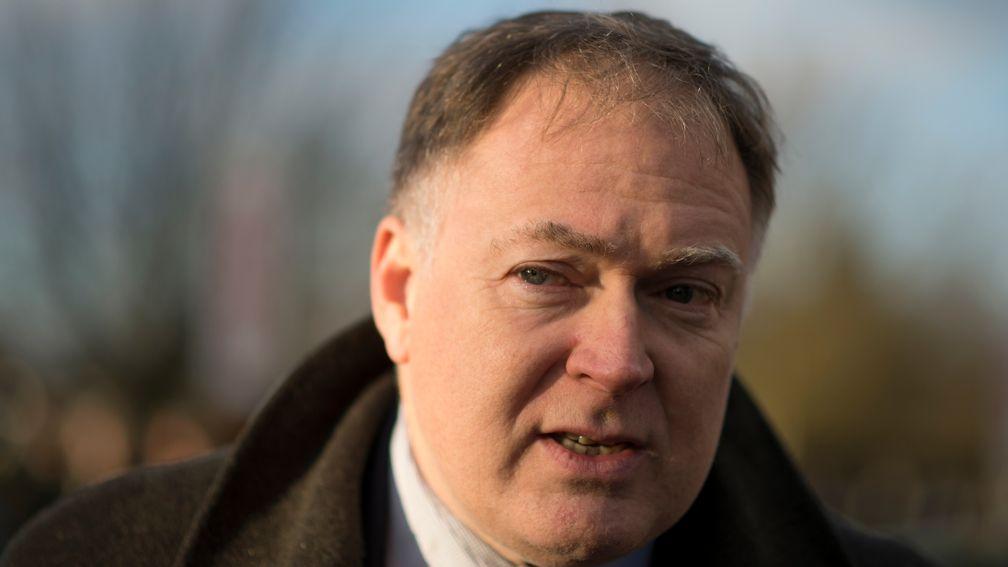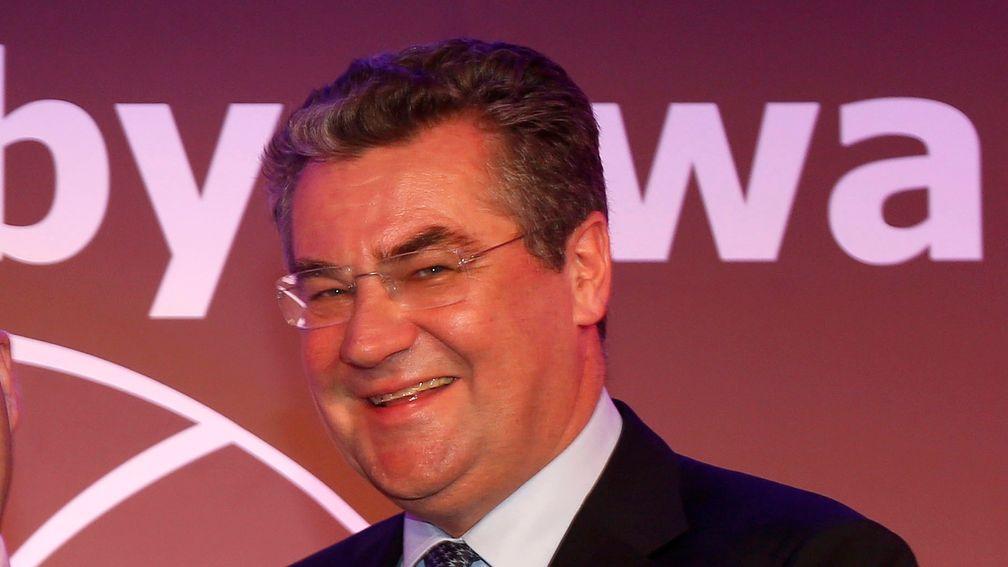Courses count cost of ABP policy but say it was worth the pain

The cost of the authorised betting partner (ABP) policy to British racecourses is likely to have run to more than a million pounds.
The Racing Post understands the cost of the policy for Jockey Club Racecourses alone was in the region of £800,000.
However, both the Jockey Club and others who were behind the scheme said it was worth the financial pain both to mitigate falling levy income and help bring about levy reform.
The ABP policy was unveiled by British racing's leadership in October 2015. Under the scheme new commercial relationships with bookmakers could be signed only if the firms agreed to pay back a proportion of their online income from British racing to the sport.
The BHA has said the ABP scheme will cease operation from the commencement date of the new levy scheme, which is on Tuesday.
When Betfred, Coral, Ladbrokes and William Hill refused to sign up it meant a number of high-profile bookmaker sponsorships – such as the Cheltenham Gold Cup and Stayers' Hurdle – ended.
The Jockey Club, along with Arena Racing Company, was one of the main supporters of ABP. It would not confirm or deny the cost of the policy, but group chief executive Simon Bazalgette said: "We anticipated a short-term cost to sponsorship of supporting the ABP initiative.
'Vital to British racing's future funding'
"This was the Jockey Club’s contribution to the sport, gathering many millions of pounds worth of funding that would have been lost otherwise, and the initiative has proved instrumental in helping to bring about the levy reforms that are vital to British racing’s future funding.
"We now have excellent commercial deals in place with new partners to replace those sponsorships."
Arc director of external affairs Susannah Gill said the policy had "a significant financial impact on Arc, and our sponsorship strategy has had to respond accordingly".
She added: "With the new levy system coming into place we look forward to continuing to work with betting operators across all platforms."
BHA head of media Robin Mounsey said: "The ABP scheme has been instrumental in securing the sport’s short-term and long-term financial security.
"In the short-term it generated well over £12 million in revenue, which has underpinned the sport’s finances and helped avoid the forecast ‘levy cliff’ that would have had major funding ramifications for all involved in the industry.
“For the longer term it's played an important part in helping the sport convince government to replace the current levy mechanism, the result of which should see in excess of £30 million in lost revenue returned to the industry each year, much of which will be invested into the sport’s grassroots."
Open to right opportunities
Bookmakers who did not sign up to the ABP policy warned at the time the sport was jeopardising future sponsorship income from them once the initiative ended.
However, those firms indicated on Monday they would be open to the right opportunities.
Coral PR director Simon Clare said their high-profile sponsorships of races like the Eclipse had survived only because they were long-term deals.
He added: "The ABP approach has put a great strain on commercial relationships with some racecourses more than others, but thankfully it's at an end, and we'll do what we've always done and look to work with racecourses who see Coral sponsorship as a two-way partnership, not just a revenue stream.
"We've just enjoyed another fantastic renewal of the Coral Scottish Grand National, which continues to go from strength to strength with another sell-out crowd and great betting turnover, and that success is in no small part down to the strong, productive partnership between Ayr and Coral.
'The model we look to achieve'
"That's the model we look to achieve with all our racing sponsorships and will continue to do so in the future."
Hills' group communications director Ciaran O'Brien said there would be a lasting effect from the ABP policy, as sponsorship spend had been switched to other sports.
He said: "We're commercial operators and will look at sponsorship opportunities as and when they arrive so wouldn't rule it out, but these contracts don't expire overnight.
"There's a horseracing audience out there that's a very key part of our business and we wouldn't rule out horseracing sponsorship in future."
Ladbrokes PR director Mike Dillon said he believed the ABP policy had been flawed because it had not recognised the work Ladbrokes had put into sponsorships like the St Leger.
However, he said his chief executive Jim Mullen was a supporter of racing and Ladbrokes would consider future sponsorships.
Dillon said: "We'd treat things on merit. When opportunities present themselves I'm sure if I put a compelling case to Jim and the board they'd look at them sympathetically."

Ladbrokes have already taken the chance to succeed Hennessy as the sponsor of the highlight of Newbury's jumps season.
Newbury was never an enthusiastic supporter of the ABP policy and signed up Ladbrokes when it was apparent the government planned to bring in a reformed levy.
Newbury head of communications and sponsorship Andy Clifton said: "Our view was always that, as an independent racecourse and a plc, we played our part but wanted to do the best thing by the racecourse and our shareholders."
Published on 24 April 2017inNews
Last updated 19:31, 24 April 2017
- Merci Olivier! No final winner for Olivier Peslier but the world of racing unites in saluting the end of a great career
- The latest edition of the Racing Post is available to read online now - here's how you can access it
- How Smart View recorded a 76 per cent profit at the Cheltenham Festival
- Smart View is available on the Racing Post app - how to read the revolutionary new racecard
- Levy reform talks 'accelerating' as clock ticks down to April deadline for agreement
- Merci Olivier! No final winner for Olivier Peslier but the world of racing unites in saluting the end of a great career
- The latest edition of the Racing Post is available to read online now - here's how you can access it
- How Smart View recorded a 76 per cent profit at the Cheltenham Festival
- Smart View is available on the Racing Post app - how to read the revolutionary new racecard
- Levy reform talks 'accelerating' as clock ticks down to April deadline for agreement